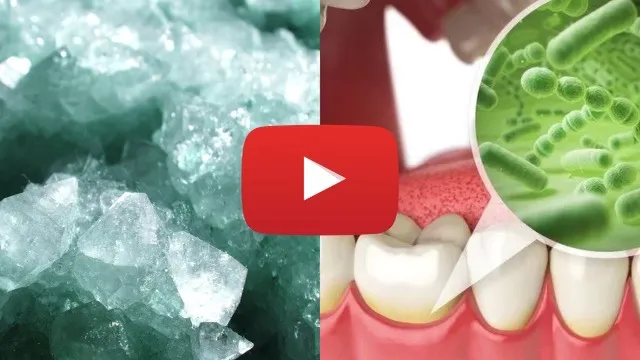Why the Health of the Bacteria in Your Mouth Matter
Why Your Mouth Microbiome Matters
The human mouth is home to a complex and diverse ecosystem of microorganisms, commonly known as the oral microbiome. The oral microbiome plays a crucial role in maintaining oral and overall health, and a healthy balance of bacteria is essential for a healthy mouth. However, an imbalance of bacteria in the mouth, known as dysbiosis, can have serious consequences for oral and overall health.
One of the main consequences of a lack of good bacteria in the mouth is an increase in harmful bacteria. The mouth is constantly exposed to a variety of pathogens, and good bacteria play a critical role in preventing the overgrowth of harmful bacteria. When there aren't enough good bacteria in the mouth, harmful bacteria can proliferate, leading to a range of oral health issues.
One of the most common oral health issues associated with a lack of good bacteria in the mouth is tooth decay. The oral microbiome plays a crucial role in maintaining the health of the teeth and gums. Good bacteria help to neutralize harmful acids produced by the breakdown of sugars and starches in the mouth, which can lead to tooth decay. When there aren't enough good bacteria in the mouth, harmful bacteria can outcompete them, leading to an increase in acid production and tooth decay.
A lack of good bacteria in the mouth can also lead to the development of periodontal disease. Periodontal disease is an inflammatory condition that affects the gums and other supporting structures of the teeth. It is caused by an overgrowth of harmful bacteria in the mouth, which leads to inflammation and damage to the gums. A lack of good bacteria in the mouth can also increase the risk of other oral health issues such as bad breath, gingivitis, and oral thrush.
A lack of good bacteria in the mouth can also have consequences for overall health. The oral microbiome is connected to the gut microbiome and plays a critical role in maintaining overall health. Studies have shown that a lack of good bacteria in the mouth can lead to an increase in inflammation throughout the body, which can increase the risk of a range of health issues such as cardiovascular disease, diabetes, and cancer.
There are several factors that can contribute to a lack of good bacteria in the mouth. Poor oral hygiene, smoking, and excessive alcohol consumption can all lead to an imbalance of bacteria in the mouth. Antibiotic use can also lead to a lack of good bacteria in the mouth, as antibiotics can kill off both harmful and beneficial bacteria.
To maintain a healthy balance of bacteria in the mouth, it is essential to practice good oral hygiene. This includes brushing and flossing regularly, using an antiseptic mouthwash, and visiting the dentist regularly. Consuming probiotic-rich foods, such as yogurt, kefir, and kimchi, can also help to promote the growth of good bacteria in the mouth.
In conclusion, the human mouth is home to a complex and diverse ecosystem of microorganisms, known as the oral microbiome. A healthy balance of bacteria is essential for a healthy mouth, but an imbalance of bacteria, known as dysbiosis, can have serious consequences for oral and overall health. A lack of good bacteria in the mouth can lead to an increase in harmful bacteria, which can cause tooth decay, periodontal disease, bad breath, gingivitis, oral thrush, and increase the risk of a range of health issues such as cardiovascular disease, diabetes, and cancer. Good oral hygiene and consuming probiotic-rich foods are essential to maintain a healthy balance of bacteria in the mouth.

Smile More
Smiling can actually make you feel happier so even if you don't feel like smiling it's worth trying. As they say, "fake it, 'till you make it".

You Are What You Eat
Eating healthy foods and foods rich in probiotics can not only help your gut health, but also your mouth health!

Top Dentist: Swallowing This Ancient Bacteria Rebuilds Teeth And Gums Fast
Sponsored Content
If you’ve ever worried about your teeth, you need to watch this video right now. A top doctor with decades of experience in the dental industry has discovered the real root cause of dental disease and irritation, and has discovered a new shockingly simple method to combat it. Say goodbye to the dentist for good!
This solution is so easy that over 34,788 people have already used it to quickly build back their smile and confidence.
Click the link below to watch the video now!

Good Mouth Bacteria Matters
Probiotics are live microorganisms that, when consumed in sufficient amounts, provide health benefits to the host. They are commonly found in fermented foods such as yogurt and kefir, as well as in supplement form. Probiotics have been extensively studied for their benefits to the gut, but recent research has also shown that probiotics in the mouth can have beneficial effects on oral and overall health.
One of the main benefits of probiotics in the mouth is their ability to improve oral hygiene. Probiotics can help reduce the amount of harmful bacteria in the mouth, which can lead to a reduction in plaque and tooth decay. They can also help prevent bad breath by controlling the growth of odor-causing bacteria.
Probiotics in the mouth can also help boost the immune system. The mouth is the first line of defense against pathogens entering the body, and a healthy oral microbiome can help prevent infections and illnesses. Probiotics can help strengthen the immune system by producing antibodies and stimulating white blood cells.
In addition, probiotics in the mouth can also help with dental issues such as gingivitis and periodontitis. These conditions are caused by an overgrowth of harmful bacteria in the mouth, which can lead to inflammation and damage to the gums. Probiotics can help balance the oral microbiome and reduce inflammation, helping to prevent and treat these conditions.
Recent studies also suggest that probiotics in the mouth may have benefits beyond oral health. For example, probiotics have been found to have a positive effect on overall cardiovascular health by reducing inflammation and cholesterol levels. Additionally, probiotics have also been found to have a positive effect on mental health, such as reducing symptoms of depression and anxiety.
There are several ways to introduce probiotics into the mouth. One way is to consume probiotic-rich foods, such as yogurt, kefir, and kimchi. Another way is to use probiotic toothpaste or mouthwash, which can help to directly deliver probiotics to the oral cavity. Probiotic supplements can also be taken to help promote the growth of beneficial bacteria in the mouth.
In conclusion, probiotics are live microorganisms that provide health benefits to the host when consumed in sufficient amounts. Probiotics in the mouth can have beneficial effects on oral and overall health by reducing harmful bacteria, improving oral hygiene, boosting the immune system, and helping to prevent and treat dental issues such as gingivitis and periodontitis. They can also have positive effects on overall cardiovascular health and mental health. Consuming probiotic-rich foods, using probiotic toothpaste or mouthwash, and taking probiotic supplements are all ways to introduce probiotics into the mouth.

Affiliate Links & Sponsored Content
Financial Disclosure:
This site makes money through affiliate partner links: If you click on a link, we may earn a commission. We take pains to ensure our site is accurate and up to date, but some information might be different than what you find when visiting a vendor website. All products are presented without warranty.
Healthy-Inspired-Life






Copyright 2023. All rights reserved.
This site is not a part of Google, Inc. or Google.com, nor is it sponsored or endorsed by Google. YouTube is a trademark of Google, Inc.
Disclaimer: This site is provided for educational purposes only.
Please consult a health professional before implementing any strategy discussed on this website.
Financial Disclosure: This site makes money through affiliate partner links: If you click on a link, we may earn a commission. We take pains to ensure our site is accurate and up to date, but some information might be different than what you find when visiting a vendor website. All products are presented without warranty.